Comparison
Spotify vs Deezer: Which is Best For You in 2025?

Spotify vs Deezer, both platforms that are compatible in the music streaming arena, offer users distinct musical journeys like Tidal. Spotify, with its extensive library exceeding 70 million tracks, stands out for personalized playlists and cross-platform versatility.
On the other hand, Deezer boasts a diverse catalog and emphasizes audio quality, providing users with options like HiFi streaming. The competition unfolds between Spotify’s algorithmic prowess and ubiquitous integration and Deezer’s commitment to a broad spectrum of music genres and high-fidelity audio.
So let us have a look at Spotify VS Deezer.
Spotify vs Deezer
When it comes to Spotify vs Deezer, there is a lot to discuss because both come with innovative and unique features.
As users navigate the dynamic landscape of music streaming, the choice between Spotify and Deezer hinges on personal preferences for content, discovery, and audio quality.
1. Library Size and Content:
Spotify takes pride in its extensive library, currently surpassing 70 million tracks. This vast collection spans various genres and ensures users have access to a diverse range of music from global hits to niche indie tracks. Spotify’s emphasis on quantity means users can explore an expansive catalog with an extensive selection of artists and albums.
In addition, Deezer also offers a substantial music library, albeit slightly smaller than Spotify’s. With over 73 million tracks, it provides a comprehensive collection of music across genres and languages. Where Deezer stands out is its commitment to local and independent artists, ensuring a broader representation of global music beyond mainstream hits.
2. Audio Quality:
Spotify provides users with a range of audio quality options. The free tier offers standard-quality streaming, while premium plans allow for higher-quality streaming at up to 320 kbps. However, Spotify doesn’t offer a specific high-fidelity tier, and its focus lies more on providing a balance between audio quality and data consumption.
Deezer distinguishes itself by offering a high-fidelity audio tier known as Deezer HiFi. This subscription tier provides lossless audio streaming in the FLAC format at 1,411 kbps, and appeals to audiophiles who prioritize superior audio quality. Deezer HiFi aims to deliver a more authentic and detailed listening experience for those with high-end audio equipment.
3. Personalization and Discovery:
Spotify is well known for its robust recommendation algorithms that power personalized playlists like Discover Weekly, Release Radar, and Daily Mixes. These algorithms analyze user listening habits, preferences, and trends to curate playlists that cater to individual tastes. Spotify’s “Your Library” feature and collaborative playlists enhance the personalization of the user experience.
Like Spotify, Deezer also employs algorithms for personalized recommendations, creating playlists such as Flow and personalized mixes. The Flow feature adapts to users’ listening habits over time and offers a continuous stream of music tailored to individual preferences. While Deezer’s personalized playlists may not be as widely recognized as Spotify’s, they contribute to an individualized music discovery experience.
4. Exclusive Content:
Spotify traditionally has not heavily focused on securing exclusive content. Its strength lies in its offers of a comprehensive library with a wide range of tracks rather than exclusive releases or early access to specific content. Spotify’s appeal centers more on its algorithmic recommendations and user-generated playlists.
Deezer, while not as aggressive as some other platforms in exclusives, has occasionally partnered with artists for early releases or exclusive content. This strategy aims to attract users looking for unique and special offerings beyond what is available on other platforms. Deezer’s approach to exclusivity is more nuanced compared to some of its competitors.
5. Subscription Plans:
Spotify offers both a free, ad-supported tier and premium subscription plans. Premium plans include features such as offline listening, higher audio quality, and an ad-free experience. Spotify’s family plans allow multiple users to share one subscription and make it cost-effective for you.
Deezer provides a free tier with ads and several premium subscription options. Premium plans, including Deezer HiFi for high-fidelity audio, offer additional features like offline listening and an ad-free experience. Deezer’s family plans to offer multiple users under a single subscription, similar to Spotify.
6. Platform Integration:
Spotify excels in cross-platform compatibility, seamlessly integrating with a wide array of devices and operating systems. It supports smartphones, tablets, computers, smart speakers, gaming consoles, and more. The Spotify Connect feature enables users to transition playback between devices seamlessly.
Deezer also offers broad device compatibility, allowing you to access their music on various platforms. However, its integration may not be as seamless across all devices compared to Spotify. While Deezer strives to support a wide range of devices, the user experience might vary depending on the specific platform.
7. Geographic Availability and Localization:
Spotify is available in numerous countries across the globe and makes it one of the most widely accessible music streaming platforms. The platform has also localized content and playlists, ensuring users can explore regional and culturally relevant music.
On the other hand, Deezer is available in over 180 countries, providing widespread access to its music streaming services. Similar to Spotify, Deezer has localized content to cater to diverse audiences and ensures a global but regionally relevant music experience.
Conclusion: Spotify vs Deezer
The choice between Spotify and Deezer depends on individual preferences, priorities, and specific criteria for a music streaming service. Spotify’s strengths lie in its massive library, robust personalized recommendations, and seamless integration across a wide range of devices. Deezer, on the other hand, distinguishes itself with its emphasis on high-fidelity audio, commitment to local and independent artists, and a nuanced approach to exclusivity. You must weigh factors such as library size, audio quality, personalization, and exclusive content to determine which platform aligns best with their musical preferences and overall listening experience.
Comparison
How To Clear Your Queue on Spotify – (Desktop/Mobile)

Are you annoyed by a bunch of songs in your Spotify queue, no more worries because you are not alone in this overwhelming situation. Sometimes, you can forget how to come out of the issues. Most often, it’s sufficient just to hide the unwanted song and go on Spotify Premium APK.
While the alternative way is to clear up the queue, do you need to know how to clear your queue on Spotify?
What is Queue on Spotify
A queue is a section on Spotify that allows you to create a playlist of songs you want to listen to and enjoy. The queue is very easy to access on Android devices, desktop apps, and mobile apps. You can either drag and drop your favorite songs into the spot or click on the +icon next to each song if you want to add more to them.
How To View Your Queue on Spotify
Comparison
Spotify vs Joox: Who is the Better in Music Streaming 2025?
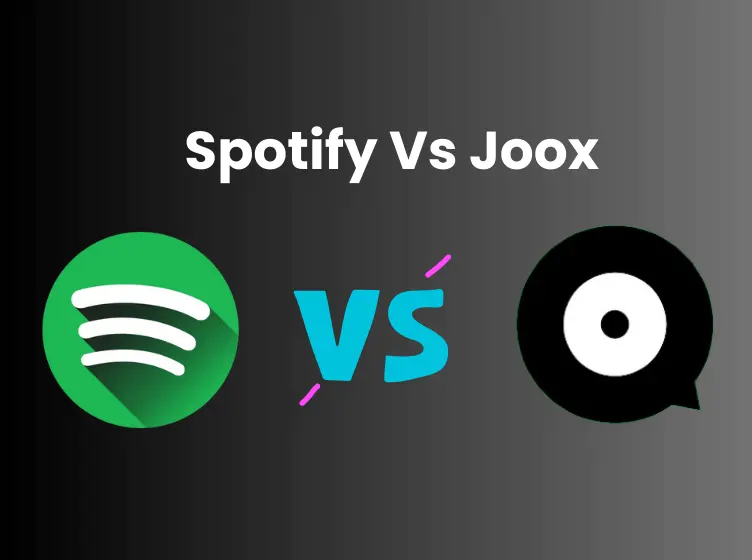
Hello! For those who are music professionals and enthusiasts listening to songs, everyone has a different answer for Spotify vs Joox. In the world of music, Myraid music platforms are working well, and practical streaming platforms thus provide you with more than enough options to experience your favorite music.
However, joox and Spotify are well-known among them, while it is difficult to tell which is better than the other. But in my personal opinion, Spotify is more liked in the USA and Europe, while Joox is considered better in Asians. We provide also a Spotify Premium APK for Spotify lovers free of cost Happy Listening..!
So, a Spotify vs Joox head-to-head comparison will reveal this secret, so you need to read more about it.
One of the most demanding digital services that allows you to access digital music, podcasts, and audio. From World, it provides millions of songs and content to its users as it offers basic functions and features for free. If you want to get premium features, you can opt for the premium option.
What is JOOX
The new music service launched in January is Joox. It offers music content for free and can be downloaded when you enable the Auto download.
The platform is unique because it also offers JOOX VIP, which allows you to enjoy unlimited skips and ad-free applications. The streaming app is more popular and widely used in Asia countries like Thailand, Indonesia, and Malaysia.
Spotify vs Joox
When you have a clear definition of Spotify and JOOX, it’s the best time to have a side-by-side comparison between the two, the comparison will highlight the aspects regarding interface, music discovery, quality, and many more.
Without waiting, let’s dive into the comparison.
Spotify vs Joox: Music Content
Spotify can be a good option for you if you want to listen to different songs every day. It features more than 40 million songs from artists and singers all over the world.
Spotify has limitless music to jam out to, in the experience of all types of music, as it offers you more than 20,000 songs every day.
On the other hand, JOOX comes with a significantly smaller music library with fewer songs, as it is half of the Spotify collection, about 20 million songs. At the same time, the best part of it is that it offers you trending local songs.
Spotify vs Joox: Music Discovery Feature
With this feature, you can find your favorite music content, like songs, quickly and easily. It is the most important factor to consider while comparing the Spotify and JOOX features.
When it comes to Spotify, it is featured with excellent music discovery as it contains daily and weekly playlists. Additionally, this huge platform can analyze your recommended sogs and data that meet your requirements and tastes.
Regarding music discovery, JOOX also is characterized by great music discovery. It offers featured artists, radio, new releases, and editor picks as its professional editors create playlists by having the latest trends on social media and local users.
Spotify vs Joox: Music Quality
The most important priority while listening to songs on any platform should be the quality of sound that it offers. The quality defines how you can enjoy the music while jamming out.
In terms of quality, Spotify offers two different music qualities, as it can run up to 160kps for free users and 96kps when are listening to your desktop. At the same time, premium users can select 320 kbps.
To meet the needs of various music quality qualities, JOOX offers standard quality at 64 kbps, which is an option for free users.
The quality is noisy and of low quality, but it helps to save a lot of data, especially in rural areas. The medium quality of this platform is 128 kbp, which can be reached by free users. Meanwhile, the VIP users can enjoy up to 320kbps.
Spotify vs Joox: Interface
Both platforms offer different interfaces for free and premium users. In the premium version, you can enjoy the user-friendly interface of both apps because you can experience a clean and clear interface without ads and commercials.
It will be a different story for free users as Spotify comes with interesting audio ads, thus giving you an annoying experience while streaming. On the other hand, JOOX does not have an audio ad; instead, it has banner apps that have fewer disturbances and interruptions.
Final Thoughts for Spotify vs Joox
To wrap up, Spotify vs Joox, it would not be wrong to say that both are digital services with engaging music streaming experiences. Both platforms have their pros and cons that you can join for the best jamming out.
From music quality to features, Spotify is more on the demanding side and prominent. It offers a better bitrate for best quality and music discovery. However, Joox is good for a friendly interface without audio ads because it lets you listen to songs without interruption.
Comparison
Spotify vs Tidal: Which is the Best Option For You in 2025?
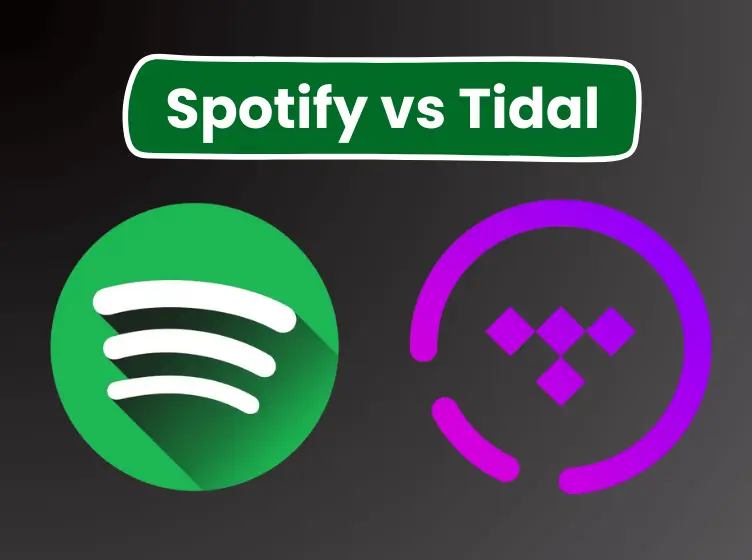
Spotify vs Tidal, prominent players in music streaming in the world of Spotify premium APK, for all types of users’ attention with distinct approaches. Spotify, a global music streaming platform, comes with a massive library of over 70 million tracks and excels in algorithm-driven personalized playlists. Tidal, on the other hand, positions itself as a high-fidelity option, emphasizing lossless audio quality and exclusive content.
Without waiting let’s have a glance over the differences between Tidal and Spotify.
Spotify vs Tidal Music
There are a lot of differences between Spotify and Tidal like Apple Music and Spotify. Competition unfolds between Spotify’s extensive catalog and user-friendly features and Tidal’s commitment to audio purity and unique artist collaborations. As music enthusiasts navigate the streaming landscape, the choice between Spotify vs Tidal hinges on individual preferences for breadth, quality, and exclusive experiences.
Audio Quality of Spotify vs Tidal:
Spotify offers a range of audio quality options, such as a free tier with standard quality streaming and premium plans that support higher-quality streaming, reaching up to 320 kbps. While Spotify provides a satisfying listening experience for most users, audiophiles might find the audio quality limitations compared to lossless formats.
Tidal sets itself apart by prioritizing audio quality and offers a HiFi subscription tier that includes lossless audio streaming. Tidal’s HiFi tier delivers music in FLAC format at 1411 kbps, providing a more accurate representation of the original recording. For those who prioritize superior audio fidelity, Tidal’s HiFi subscription is a compelling choice.
Exclusive Content:
While Spotify focuses on an extensive library with over 70 million tracks, it doesn’t heavily emphasize exclusive content. Its strength lies in algorithm-driven recommendations and user-generated playlists. Exclusive releases on Spotify are limited, and the platform’s appeal rests more on its comprehensive catalog and personalized user experience.
Tidal takes a different approach by heavy investment in exclusive content, like early releases, exclusive tracks, and behind-the-scenes footage. The platform has secured exclusive deals with high-profile artists and attracts you to seek unique and unreleased material. Tidal positions itself as a platform that not only offers high-quality audio but also exclusive access to artists and their work.
Subscription Tiers:
Spotify provides a free, ad-supported tier with limitations, and premium subscription plans offer you additional features such as offline listening, higher audio quality, and an ad-free experience. Spotify’s family plans make it cost-effective for households and allow multiple users to share one subscription.
Tidal offers several subscription tiers, including Premium, HiFi, and HiFi Plus. The Premium tier provides standard audio quality, while the HiFi tier includes lossless audio streaming. HiFi Plus goes a step further, adding high-quality audio with access to Tidal’s exclusive experiences and content. Tidal’s subscription options cater to both casual listeners and audiophiles.
Artist Compensation and Ownership:
Spotify has faced criticism for its artist compensation model, which is based on the number of streams rather than direct payment. While it provides exposure to a vast audience, some artists argue that the revenue generated per stream may not adequately compensate them for their work. Spotify is a publicly traded company with various stakeholders.
Tidal, initially launched with a focus on artist equity, is artist-owned, with notable figures like Jay-Z among its co-owners. The platform emphasizes fair compensation for artists and advocates higher payouts per stream. Tidal’s artist-friendly approach seeks to address concerns within the music industry regarding the financial well-being of musicians.
Music Discovery and Playlists:
Spotify’s strength lies in its robust recommendation algorithms, which generate personalized playlists like Discover Weekly and Release Radar. The platform’s “Daily Mixes” and “Your Library” contribute to a highly tailored user experience. Spotify’s focus on music discovery and curated playlists sets it apart as a go-to platform for users seeking new content.
While Tidal offers curated playlists and recommendations, its emphasis on exclusive content sometimes takes precedence over algorithm-driven music discovery. Tidal aims to attract users not just with personalized playlists but also through exclusive access to content and events making it a platform for those who value unique and premium experiences.
Platform Integration:
Spotify excels in cross-platform compatibility and supports a wide range of devices and operating systems. It seamlessly integrates with smartphones, tablets, computers, smart speakers, and gaming consoles. Spotify Connect allows users to transition playback between devices effortlessly.
Tidal also offers broad device compatibility, but its integration is not as seamless across all platforms as Spotify’s. While it caters to various devices, Tidal’s optimization within the ecosystem of specific devices may not match the level of integration seen in platforms like Spotify, especially outside its supported devices.
Final Verdict of Spotify vs Tidal
With these facts and differences, you can choose between Tidal and Spotify considering personal preferences, priorities, and the desired music streaming experience. Spotify excels in its extensive library, personalized playlists, and cross-platform compatibility, and makes it a top choice for many users. Tidal, with its focus on high-fidelity audio, exclusive content, and artist-friendly initiatives, caters to those who prioritize superior audio quality and seek unique, exclusive experiences with their favorite artists. Ultimately, the decision between Tidal and Spotify depends on whether users prioritize quantity, quality, or a combination of both in their music streaming service.
-
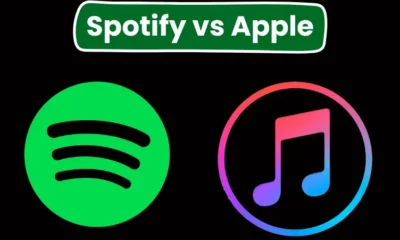
 Comparison10 months ago
Comparison10 months agoSpotify vs Apple Music: Which is the Better Music App in 2025?
-

 Blog7 months ago
Blog7 months agoDiscover the Power of digitalconnectmag.com: 5 Reasons Why It Matters Today
-

 ENTERTAINMENT9 months ago
ENTERTAINMENT9 months agoThe 15 Best Soap2day Alternatives for Streaming Movies & TV Shows in 2025
-

 TECHNOLOGY4 months ago
TECHNOLOGY4 months agoStarthb5: Your Gateway to Smarter Digital Innovation
-
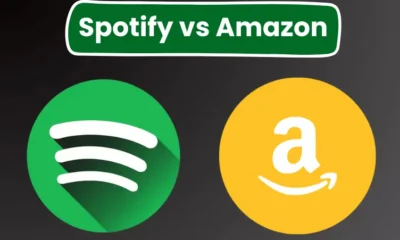
 Comparison10 months ago
Comparison10 months agoSpotify vs Amazon Music: Who is The Winner in 2025?
-
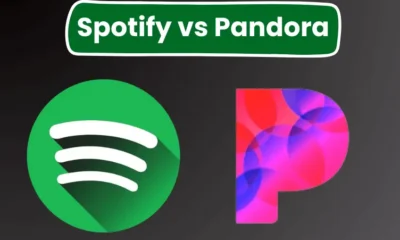
 Comparison10 months ago
Comparison10 months agoSpotify vs Pandora: Which is Better Service in 2025?
-
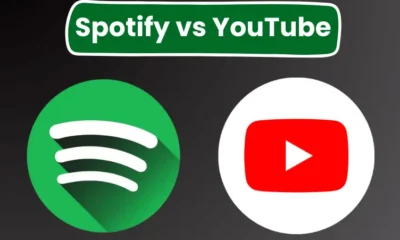
 Comparison10 months ago
Comparison10 months agoSpotify vs YouTube Music: Which is Better for You in 2025?
-

 BUSINESS10 months ago
BUSINESS10 months agoCostStatus.com#: Your Ultimate Guide to Money Management
